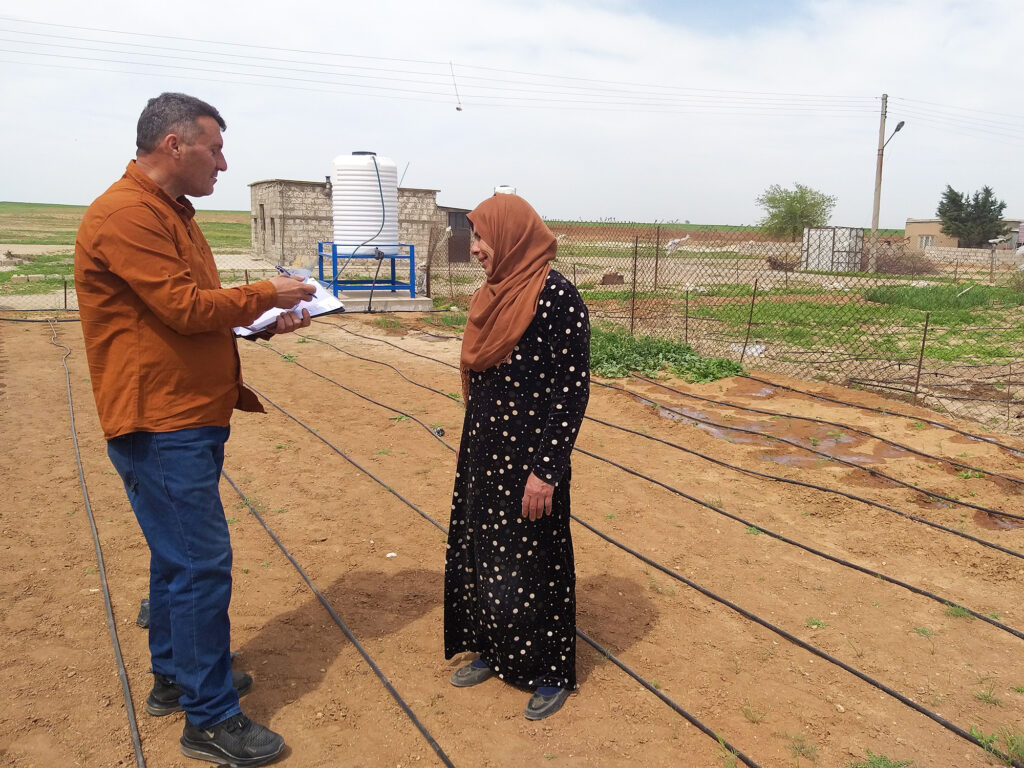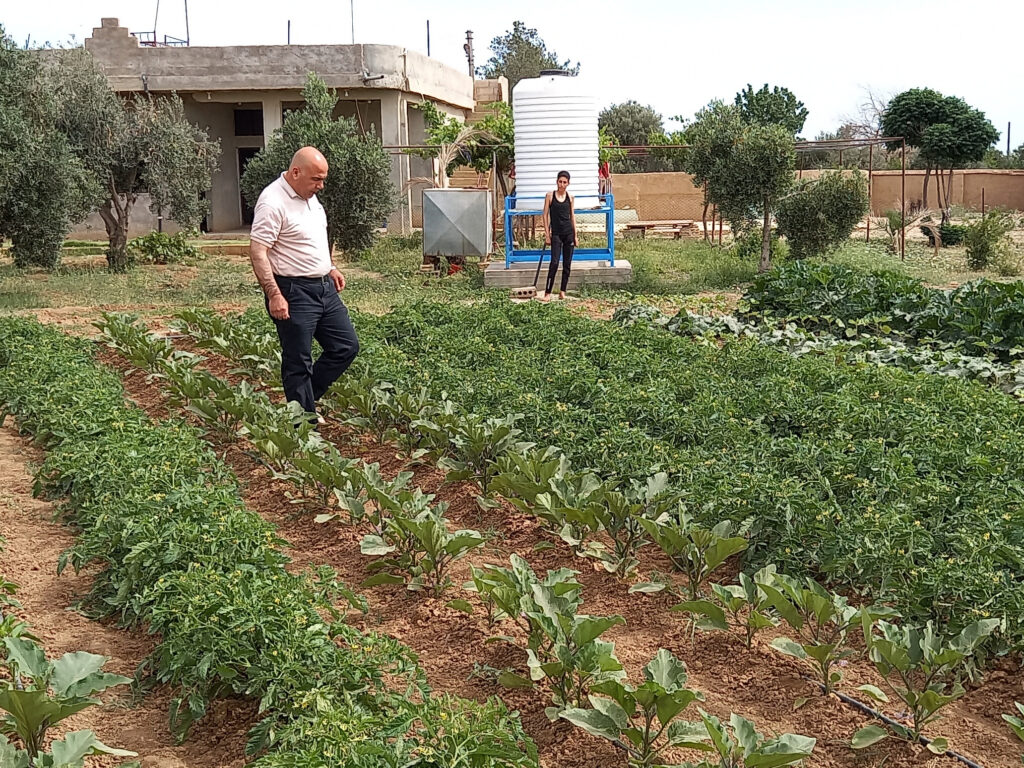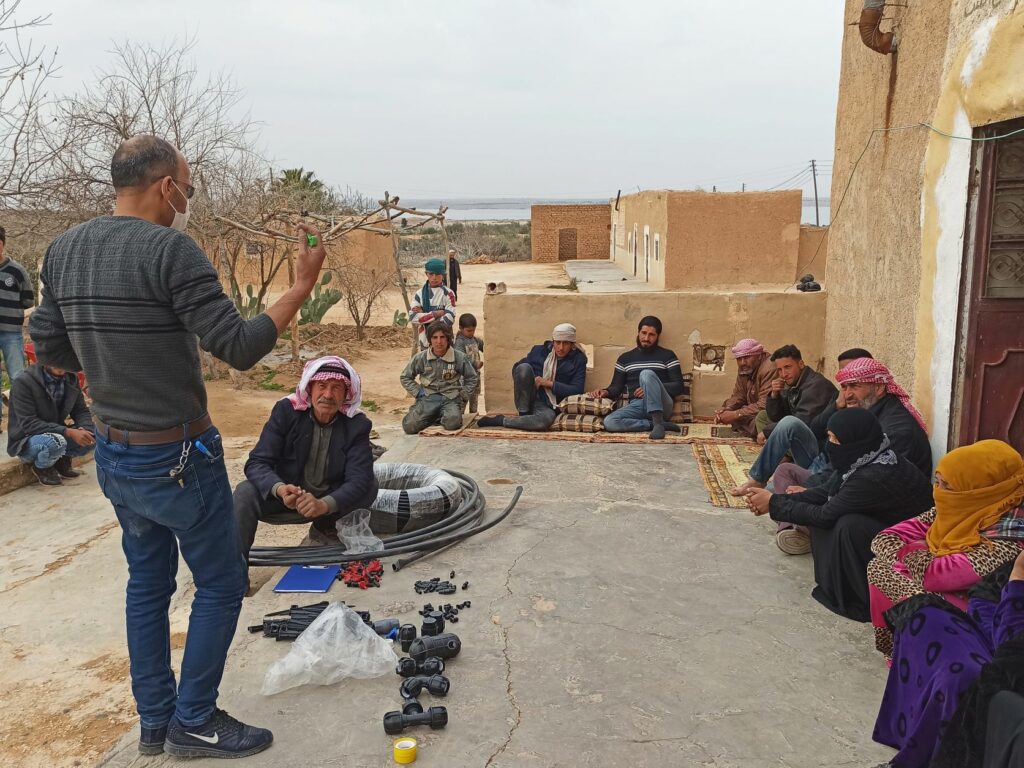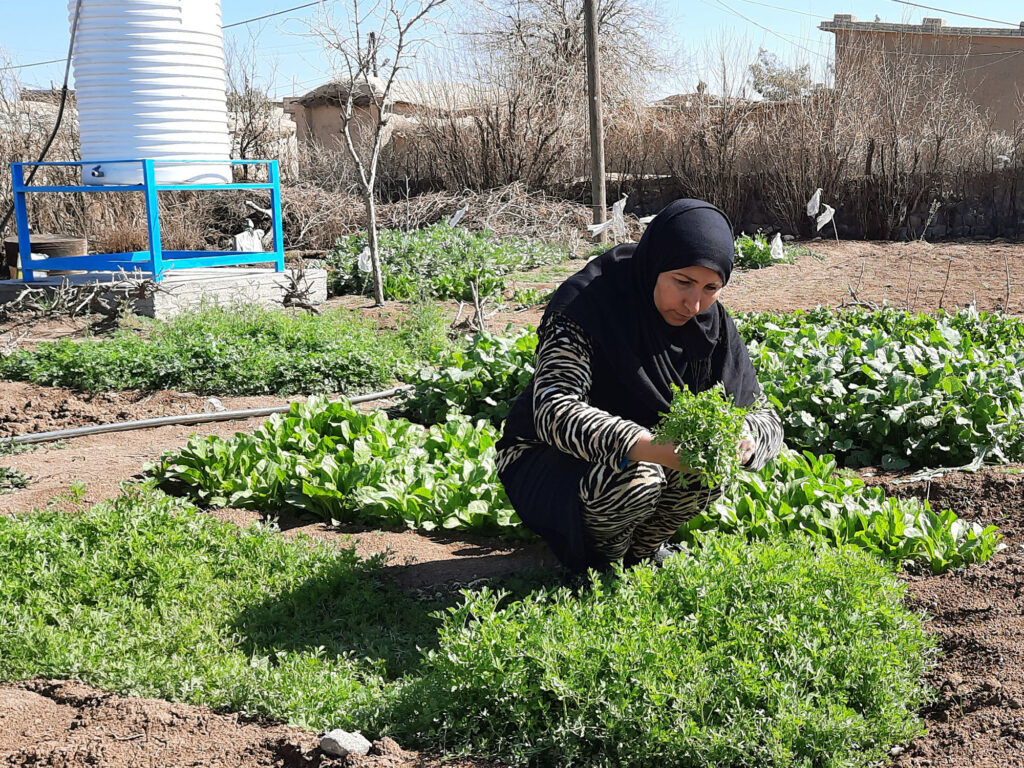In northeast Syria (NES), farmers and gardeners alike are facing a compounding crisis. The rapid rise in prices for supplies, the deteriorating Syrian economy, and a severe drought have created nearly impossible conditions. Food is scarce, and families often struggle to buy enough to eat.

The SAFER team installed drip irrigation systems to help 1,000 families grow their own homestead vegetable gardens.
A small intervention is making a big difference for families in NES – one drop at a time. Our team for the USAID-funded Shelter and Food Emergency Response program, which has a focus on food security, installed drip irrigation systems to help 1,000 families grow their own homestead vegetable gardens in an environmentally conscious way.
Our team and local farmers observed a significant decrease in rainfall since last year, which has had a serious impact on crop production. With less rain, traditional growing methods have been failing, leaving families unable to sustain themselves even when they had their own gardens. “Water is scarce, and the electricity cuts out a lot,” one homestead gardener said. “Our vegetables were dying of thirst.”

Each of the 1,000 households received seeds, tools, fertilizers, and a drip irrigation kit, which our team installed on their property in less than an hour.
Installing a drip irrigation system has made all the difference. Each household received seeds, tools, fertilizers, and a drip irrigation kit, which our team installed on their property in less than an hour. The system pumps water from a tank into hoses that run up and down the gardens, providing water droplets to each plant.
This sustainable irrigation method is improving local food security and improving water usage in NES for the better. Drip irrigation saves gardeners time, energy, and money, and lessens the damaging effects of chemical fertilizers. Since the region is facing a water shortage, getting water to the right places prevents overuse. In addition, water tanks were equipped with more efficient pumps and can be fed via rainwater harvesting, reducing the amount of fuel and water needed to run the system.
An elderly gardener shared, “The drip irrigation technique is easy to deal with and does not require much effort. It has helped us a lot with continuing to farm despite the conditions.”

Community members are trained to maintain the drip irrigation systems so farmers can continue to use them for years to come.
In addition to the installation of drip irrigation systems, our technicians visited the home-based farmers three-to-four times to ensure their irrigation systems were working well and answer any questions. Our team also trained community members to maintain the systems so farmers can continue to use them for years to come.
Our agriculture technician Nosheen Saidow, who works closely with food-insecure families to build their drip irrigation systems, said: “Each day, I see how interconnected natural resources and a community’s future can be.” Now, with the systems in place for an entire season, “we are seeing the positive impact drip irrigation is having on the quality and quantity of crops,” she added.

Drip irrigation saves gardeners time, energy, and money, and decreases the damaging effects of chemical fertilizers.
This spring, the team saw homestead vegetable gardens flourishing across the region. Despite the drought and ongoing conflict, families can sustain themselves on home-grown produce while protecting their environment.
Learn from Nosheen about why drip irrigation is critical for sustainable development:



